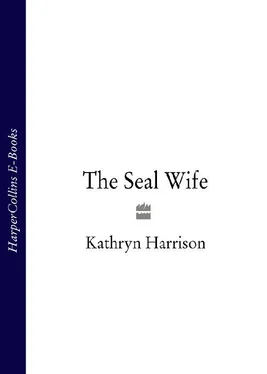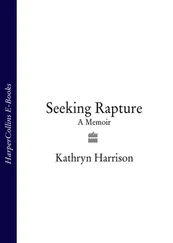She has three tusks of walrus ivory and a bundle of pelts, red fox mostly, pups and summer skins not worth more than a dime apiece. She leans forward over the wide counter to point at what she wants in exchange—tea, tobacco, toffee, a bottle of paregoric. Her arm up, her ungloved fingers outstretched, she waits until Getz takes each item from the shelf, slaps it down on the counter in a manner intended to convey impatience and condescension.
At Getz’s, payment is accepted in a number of forms: gold, flake or nugget; coins, American, Russian, and Canadian; skins—sable, marten, mink, otter, seal, rabbit, lynx, wolverine, caribou, bear, wolf, moose, fox, lemming, beaver—anything bigger than a rat that has a hide to tan; and miscellany, blankets, boots, eggs, nails, needles, knives. Two walls of the store are devoted to complications of equivalence, and while certain values are not negotiable—gold is gold, and it is twelve dollars an ounce, this is painted on the wall in black—the worth of an egg, for example, goes up and down according to the number of chickens that make it through the winter. And that population depends on how many have worn themselves out laying without cease when days are twenty hours long. So Getz inscribes the cost of eggs in chalk.
“Not un—uh, ornamental,” he says, noting how Bigelow stares at the woman. With one proprietary elbow pinning down the pelts, he ties her purchases together with twine. “If the war paint don’t bother you.”
As if she understands, the woman turns and stares back at Bigelow, her jaw thrust forward, unapologetic, even defiant. In what way does she see him? How does he look to her? He thinks of himself as handsome—handsome enough, anyway—with a broad face, pale blue eyes almost too widely set, a straight nose, and a wide mouth that balances the eyes. There’s nothing sharp in his face, nothing mean. His big forehead appears even bigger because of his fair eyebrows, his slightly elevated hairline. As for her: black braid, black eyes, black buttons on her bodice, and little black lines drawn on her chin. She watches Bigelow watching her, and her pale tongue comes into the corner of her mouth.
Bigelow forgets his broken bootlace and follows her out the door and up the frozen rut in the middle of the street. The three tins swing from her hand, now hidden in its sealskin mitten; the brown bottle gleams in the other. She walks without once looking back at him, without turning her head to the right or the left, neither slow nor fast, steps as neat as stitches, and he stumbling and slipping ten paces behind the back of her parka.
By the time she reaches her house he’s caught up to her, and when she opens the door he goes in after her, sufficiently amazed by his own boldness to leave the door ajar. A dusting of snow collects in his wake. She puts her packages down on the table, picks up her broom, and sweeps the flakes outside before they have a chance to melt.
As if he were not there—her failure to acknowledge him isn’t a refusal, it is nothing so pointed that he can use the word ignore —she hangs her mittens on a nail, she removes her parka and boots, she unties the twine from her tins of tea, tobacco, and toffee. Then she chooses a small log from the wood box, picking through its contents for the piece she wants, and opens the door of the stove to lay it on the embers.
Neither of them speaks, and if he steps in her path, she moves silently out of his way. It is perhaps a quarter of an hour before they touch, and this is only the contact required for her to remove his parka, as it is dripping on the floor. With his heart beating so that he can feel it, he watches her fingers ease the long bone buttons from the loops of leather, he holds his arms out, and the coat’s heavy sleeves slide from them. She hangs the wet fur on a peg by the door, and he sits down in one of her two chairs.
From his seat by the stove he watches her make and drink a cup of tea, then unwrap the foil from around a toffee and slowly chew it. The candy is so adhesive that twice her teeth stick together. To loosen them she moves her lower jaw from side to side, frowning with the effort, and he can see muscle under the smooth skin of her cheek. When she is finished, her pale tongue again emerges, licking whatever sweetness remains on her lower lip. Then she closes her mouth and looks at him.
It’s a long look, not appraising, and not inquisitive. She must know what he wants, but she betrays neither apprehension nor enthusiasm—nothing of what she feels—and he returns her gaze without any idea as to what she might be thinking. She doesn’t appear to find him attractive, nor repugnant. Living on the outskirts of town, she’s seen enough whites that he can’t strike her as surprising or compelling or even interesting.
After a minute, he realizes that he is trying to fill the silence with gestures, lifting and lowering his eyebrows, compressing his lips, sniffing, blinking, touching his face—the visual equivalent of chatter—and he stops.
The light from the window has dimmed. She retrieves a lamp from the shelf where she keeps her tobacco, a hurricane lamp with a spotless glass chimney, filled with fishy-smelling oil that makes the wick sputter and spark. After lighting it, she doesn’t sit but remains standing behind her chair, her hands holding the top rung; and, as this posture seems to Bigelow like a dismissal, he gets to his feet. He pulls on his boots, parka, and gloves, and closes her door behind him.
He feels drunk as he walks through the early twilight, new snow creaking under his boots and the dogs just beginning to howl. His mouth is dry and his heart pounds as if from exertion, but it isn’t that, it’s something else. Suddenly, the streets are beautiful, glittering and blue under a sky stretched so wide it has room for everything: sun, moon, and stars.
BY THE TIME HE MOVES from his tent into his station house, winter has arrived. November 18, 1915, the sun sets at 2:42 P.M., and Bigelow, bundled upstairs in parka, boots, and discouragingly pungent caribou trousers, watches it disappear across the inlet’s sullen horizon and inscribes the hour and the minute into his log, writing as carefully as he can without removing his gloves. The sun’s descent illuminates the various layers of cloud, inspiring him to annotate their features and relative positions in the sky. A single remaining ray, like a celestial finger, reaches up and points to the blurred belly of nimbostratus, and he watches as it fades. Perhaps it will snow the next day. Bigelow stands, hugging himself against the cold, until he can see no more.
Downstairs, where he can move around without the encumbrance of furs, he has placed his drafting table next to the stove, and he works at its slanting surface during the long dark hours of the season. He has his responsibilities to the central bureau in Washington, D.C., and he has local duties as well.
For the town of Anchorage, in a frenzy of construction, Bigelow is to create a forecast map and tack it to the post office wall every day by two P.M., and he is to fly flags appropriate to that forecast: white for fair, blue for rain or snow, a red pennant for easterly winds, a yellow for westerly, and so on—eighteen combinations to cover all the possibilities, a language of signals familiar to citizens of the United States, but who knows if the local populace will understand it? Still, that isn’t Bigelow’s problem; his forecasts are for the Alaska Engineering Commission and its railroad, for which everyone is waiting.
There’s coal in Alaska—coal fields and diamond mines, veins of gold, silver, copper—and the fastest way to get it out of the territories and sold is by rail. If President Wilson relents, if the United States joins the Allies against Germany, the war effort will demand Alaska’s wealth. No one wants war, and yet everyone is excited by the possibility. Impatient to finish laying track and begin surveying for a deepwater port, the Engineering Commission has already made mistakes, mistakes for which weather was blamed, and Bigelow has been sent north to prevent more of them from happening. Last year, all the equipment shipped up from Panama’s completed canal—steam shovel, dredge, and crane—sank in the inlet. An unexpected storm blew in, the wind hit fifty knots, two barges crashed into floe ice and sank. So now the commission has decreed that no work proceed before the weather forecast is known. And forecasts depend on maps. To the initiated, air has features as clear as land, features that can be drawn, lines that divide one degree from another. Interpretations of those drawings may vary, opinions among meteorologists diverge, but good maps are absolute; they are irrefutable.
Читать дальше












